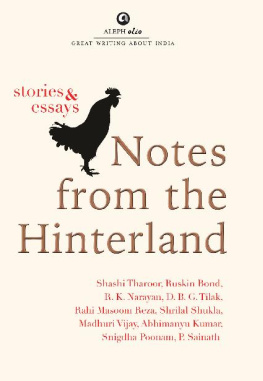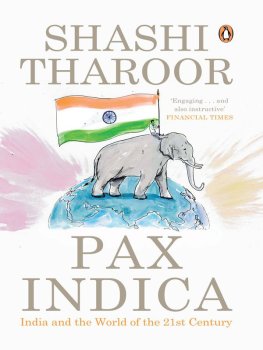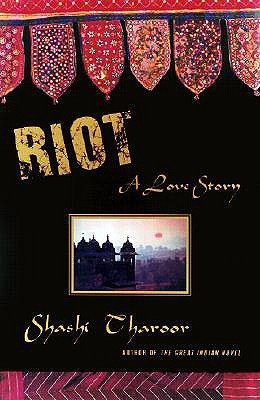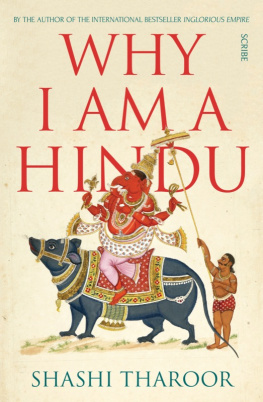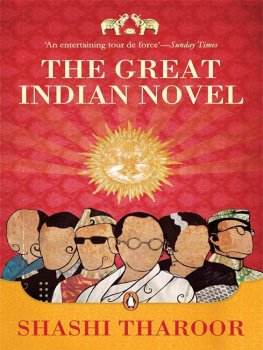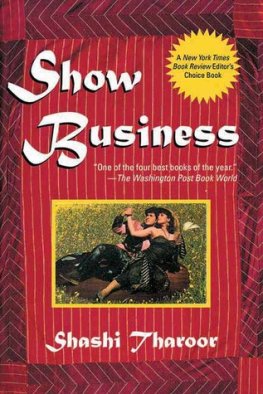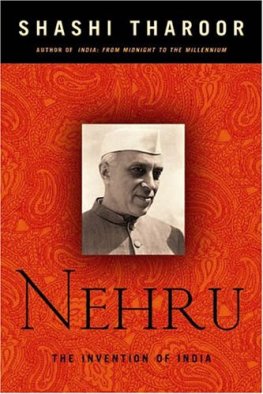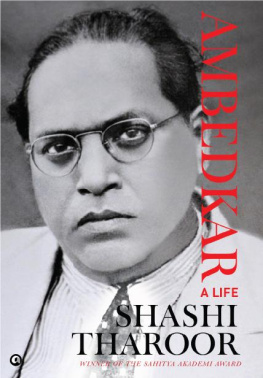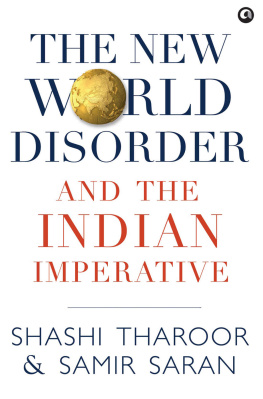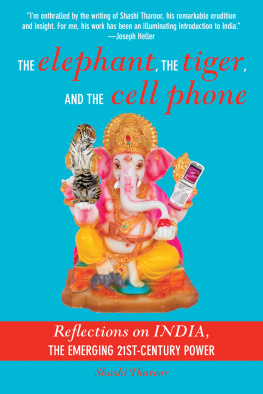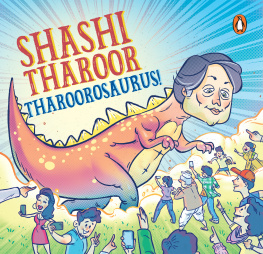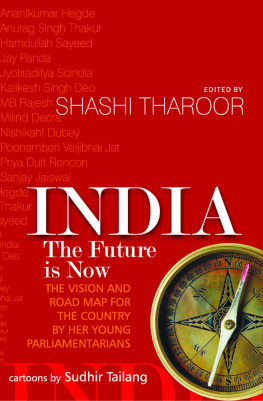One of the meanings of the word olio is a miscellany. The books in the Aleph Olio series contain a selection of the finest writing to be had on a variety of Indian themesthe great cities, aspects of culture and civilization, and other uniquely Indian phenomena. Filled with insights and haunting evocations of a country of unrivalled complexity, beauty, tragedy and mystery, each Aleph Olio book presents India in ways that it has seldom been seen before.
Also in Aleph Olio
The Essence of Delhi
In a Violent Land
Love and Lust
Forthcoming in Aleph Olio
Ways of Dying
The Book of Kings
ALEPH BOOK COMPANY
An independent publishing firm
promoted by Rupa Publications India
First published in India in 2019
by Aleph Book Company
7/16 Ansari Road, Daryaganj
New Delhi 110 002
Anthology copyright Aleph Book Company 2019
Cover image copyright designer_an/Shutterstock
p. 139 (Acknowledgements) is an extension of the copyright page.
Copyright for the individual pieces and translations vests
in the respective authors and translators.
All rights reserved.
While every effort has been made to trace copyright holders and obtain permission, this has not been possible in all cases; any omissions brought to our attention will be remedied in future editions.
In the works of fiction in this anthology, names, characters, places and incidents are either the product of the authors imagination or are used fictitiously and any resemblance to any actual persons, living or dead, events or locales is entirely coincidental.
In the works of non-fiction, the views and opinions expressed in this book are the authors own and the facts are as reported by them, which have been verified to the extent possible, and the publishers are in no way liable for the same.
No part of this publication may be reproduced, transmitted, or stored in a retrieval system, in any form or by any means, without permission in writing from Aleph Book Company.
ISBN: 978-93-88292-55-9
1 3 5 7 9 10 8 6 4 2
For sale in the Indian subcontinent only.
This book is sold subject to the condition that it shall not, by way of trade or otherwise, be lent, resold, hired out, or otherwise circulated without the publishers prior consent in any form of binding or cover other than that in which it is published.
Small towns always remind me of death.
My hometown lies calmly amidst the trees,
it is always the same,
in the summer or winter,
with the dust flying,
or the wind howling down the gorge.
From Small Towns and the River
by Mamang Dai
A Note on Style
As the various stories and essays in this book have been excerpted from books that have their own styles of spelling Indian words and proper nouns, no attempt has been made to standardize the text according to the Aleph house style. The only stylistic rules that have been observed throughout the book are that British spellings have been used and Indian words have not been italicized.
Contents
one
~
Scheduled Castes, Unscheduled Change
Shashi Tharoor
I was about eight or nine when I first came across Charlis.
A few of us children were kicking a ball around the dusty courtyard of my grandmothers house in rural Kerala, where my parents took me annually on what they called a holiday and I regarded as a cross between a penance and a pilgrimage. (Their pilgrimage, my penance.) Balettan, my oldest cousin, who was all of thirteen and had a bobbing Adams apple to prove it, had just streaked across me and kicked the ball with more force than he realized he possessed. It soared upwards like a startled bird, curved perversely away from us, and disappeared over our high brick wall into the rubbish heap at the back of the neighbours house.
Damn, I said. I had grown up in Bombay where one said things like that.
Go and get it, da, Balettan commanded one of the younger cousins. Da was a term of great familiarity, used especially when ordering young boys around.
A couple of the kids, stifling groans, dutifully set off toward the wall. But before they could reach it the ball came sailing back over their heads towards us, soon followed over the wall by a skinny, sallow youth with a pockmarked face and an anxious grin. He seemed vaguely familiar, someone Id seen in the background on previous holidays but not really noticed, though I wasnt sure why.
Charlis! a couple of the kids called out. Charlis got the ball!
Charlis sat on the wall, managing to look both unsure and pleased with himself. Bits of muck from the rubbish heap clung to his shirt and skin. Can I play? he asked diffidently.
Balettan gave him a look that would have desiccated a coconut. No, you cant, Charlis, he said shortly, kicking the ball towards me, away from the interloper whod rescued it.
Charliss face lost its grin, leaving only the look of anxiety across it like a shadow. He remained seated on the wall, his legsbare and thin below the grubby mundu he tied around his waistdangling nervously. The game resumed, and Charlis watched, his eyes liquid with wistfulness. He would kick the brick wall aimlessly with his foot, then catch himself doing it and stop, looking furtively at us to see whether anyone had noticed. But no one paid any attention to him, except me, and I was the curious outsider.
Why cant he play? I finally found the courage to ask Balettan.
Because he cant, thats all, replied my eldest cousin.
But why? We can always use another player, I protested.
We cant use him , Balettan said curtly. Dont you understand anything, stupid?
That was enough to silence me, because I had learned early on that there was a great deal about the village I didnt understand. A city upbringing didnt prepare you for your parents annual return to their roots, to the world theyd left behind and failed to equip you for. Everything, pretty much, was different in my grandmothers house: there were hurricane lamps instead of electric lights, breezes instead of ceiling fans, a cow in the barn rather than a car in the garage. Water didnt come out of taps but from a well, in buckets laboriously raised by rope pulleys; you poured it over yourself out of metal vessels, hoping the maidservant whod heated the bathwater over a charcoal fire had not made it so hot youd scald yourself. There were the obscure indignities of having to be accompanied to the outhouse by an adult with a gleaming stainless-steel flashlight and of needing to hold his hand while you squatted in the privy, because the chair- like commodes of the city had made you unfit to discharge your waste as an Indian should, on his haunches. But it wasnt just a question of these inconveniences; there was the sense of being in a different world. Bombay was busy, bustling, unpredictable; there were children of every imaginable appearance, colour, language, and religion in my school; it was a city of strangers jostling one another all the time. In my grandmothers village everyone I met seemed to know one another and be related. They dressed alike, did the same things day after day, shared the same concerns, celebrated the same festivals. Their lives were ordered, predictable; things were either done or not done, according to rules and assumptions Id never been taught in the city.




